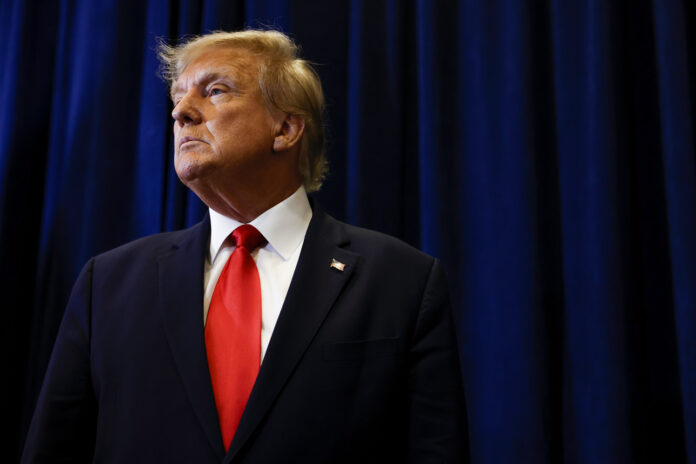In the intricate labyrinth of legal battles surrounding former President Donald Trump, one of the most intriguing and consequential challenges lies in Georgia’s peculiar pardon system. While the specter of federal prosecutions looms over Trump’s potential legal future, his path in Georgia is marked by distinct obstacles that render his traditional methods of power and influence ineffective.
The landscape of Trump’s legal woes has captured the nation’s attention, especially in the context of the 2024 election. Federal prosecutors are well aware that if Trump reclaims the presidency, he could potentially disrupt their ongoing criminal cases against him. This could be achieved through a combination of presidential orders to dismiss charges or even a controversial self-pardon. However, when it comes to the racketeering charges he faces in Georgia, the playbook takes a different turn.
The heart of the matter lies in the jurisdiction of pardons. Presidential pardons have sway over federal crimes, a power that could grant Trump some maneuverability within the federal legal framework. But the indictment in Georgia delves exclusively into state-level crimes, effectively placing Trump outside the realm of presidential pardon authority. Curiously, even seeking solace from the state’s governor is a futile endeavor in Georgia’s unique system, as the governor is devoid of the power to issue pardons.
The spotlight then shifts to the Georgia State Board of Pardons and Paroles, a five-member panel endowed with the constitutional authority to issue pardons. However, this process deviates significantly from its federal counterpart. Unlike the federal system, which enables presidents to preemptively issue pardons even before a trial has concluded, Georgia’s system mandates a waiting period of at least five years after the completion of a sentence before an application for pardon can be considered.
Erin Donohue-Koehler, pro bono coordinator for the Georgia Justice Project, elaborated on this distinctive aspect, noting that a pardon in Georgia is primarily for convictions, and individuals cannot seek a pardon at the outset of a legal matter. This distinctive timing underscores the uniqueness of Georgia’s approach to pardons, which contrasts with the broader federal landscape.
The divergence doesn’t end with timing alone. The Georgia case presents a potential conundrum for Trump, as the criteria for pardon applicants hold certain stringent conditions. The board places a significant emphasis on candidates who have accepted responsibility for their actions and shown genuine remorse. This could prove to be a stumbling block for Trump, whose post-presidential stance has been marked by defiance rather than contrition.
Furthermore, the Georgia indictment carries severe implications for Trump’s liberty. With 13 felony counts against him, including several with mandatory minimum prison sentences, the potential consequences are substantial. While the state board permits limited exceptions to the waiting period, these are primarily reserved for specific cases such as immigration or employment-related needs, making them relatively uncommon.
Interestingly, this set of circumstances casts a long shadow over Trump’s potential return to power. Unlike the federal level where the possibility of a self-pardon remains uncertain and controversial, Georgia’s unique system leaves little room for manipulation. Even the possibility of a Republican successor issuing pardons for Trump’s federal cases wouldn’t alleviate the weight of the Georgia charges.
In the broader scope of Trump’s legal predicaments, including the New York state charges and the federal prosecutions, the Georgia case stands out as a challenging and intricate puzzle. As the former president navigates this complex legal landscape, he finds himself grappling with a set of circumstances that curtail the very methods of power and control he’s often wielded to his advantage. The contours of Georgia’s pardon system paint a different picture—one where traditional avenues of influence hold little sway, leaving Trump to face potential legal consequences in a new and uncharted manner.
Hits: 0









